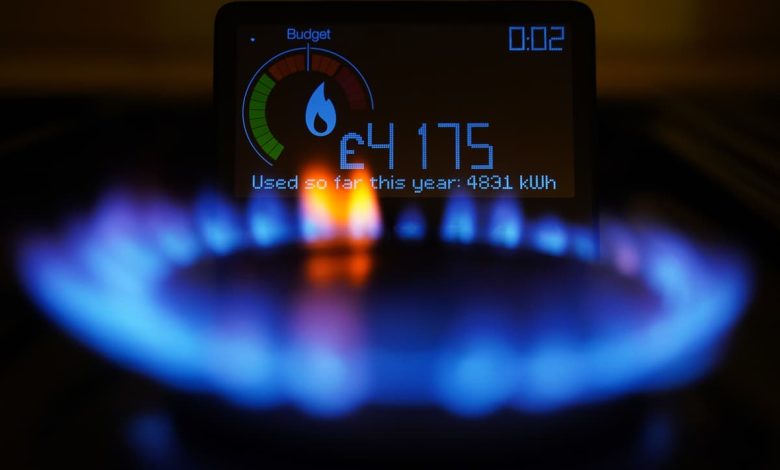Household energy bills set to fall by 7% in July

The world of energy pricing can be a complex and ever-changing landscape, leaving many of us feeling uncertain about what the future holds for our household bills. However, there is a glimpse of hope on the horizon, as regulator Ofgem is expected to reset the price cap once again in October. This reset is anticipated to bring about another “modest” fall in energy prices, which could provide some much-needed relief for households struggling to make ends meet. The price cap, which was introduced to protect consumers from excessive price hikes, has been a crucial mechanism in shielding households from the worst of the energy market volatility.
As we look ahead to the coming months, it’s natural to wonder what other changes might be in store for energy prices. According to Cornwall Insights, a leading authority on energy market analysis, there are indications that bills could come down again in January. This would be a welcome development, particularly for those who have been feeling the pinch of high energy costs. However, it’s essential to remember that the energy market is inherently unpredictable, and a variety of factors can influence prices. Changing weather patterns, for instance, can impact demand for energy, while geopolitical events, such as the ongoing conflict in Ukraine, can disrupt global energy supplies and drive up costs. Additionally, the relaxation of EU gas storage rules and ongoing debates around US tariffs could also have a bearing on energy prices, making it challenging to predict with certainty what the future holds.
The war in Ukraine has had a profound impact on the global energy landscape, leading to significant price volatility and uncertainty. As the conflict continues to unfold, it’s likely that energy prices will remain sensitive to developments in the region. The relaxation of EU gas storage rules, meanwhile, could help to alleviate some of the pressure on energy supplies, but it’s unclear how this will play out in practice. Similarly, the ongoing debates around US tariffs have the potential to influence energy prices, particularly if they affect the cost of imported energy supplies. With so many variables at play, it’s little wonder that forecasting energy prices can be a challenging task, even for the experts. Despite these uncertainties, it’s reassuring to know that regulators like Ofgem are working tirelessly to protect consumers and ensure that energy prices remain fair and reasonable.
As we navigate the complexities of the energy market, it’s essential to remember that households are not alone in facing uncertainty. Energy suppliers, too, are grappling with the challenges of a rapidly changing market, where prices can fluctuate wildly in response to global events. The price cap, which is designed to shield consumers from the worst of these fluctuations, has been a vital mechanism in maintaining stability and fairness in the energy market. However, it’s also important to recognize that the price cap is not a static entity, and it must be regularly reviewed and updated to reflect changing market conditions. This is why Ofgem’s periodic resets of the price cap are so crucial, as they help to ensure that energy prices remain aligned with the underlying costs of energy production and supply.
As we look to the future, it’s clear that the energy market will continue to be shaped by a wide range of factors, from geopolitical events to technological innovations. The rise of renewable energy sources, for example, has the potential to transform the energy landscape, reducing our dependence on fossil fuels and mitigating the impact of price volatility. However, this transition will not happen overnight, and it will require significant investment and planning to ensure a smooth and orderly transition to a low-carbon economy. In the meantime, households can take steps to reduce their energy consumption and minimize their exposure to price fluctuations. Simple measures, such as insulating homes, using energy-efficient appliances, and switching to cheaper tariffs, can all help to reduce energy bills and make a positive impact on the environment.
In conclusion, the energy market is a complex and dynamic landscape, subject to a wide range of influences and uncertainties. While it’s impossible to predict with certainty what the future holds for energy prices, it’s reassuring to know that regulators like Ofgem are working to protect consumers and ensure that energy prices remain fair and reasonable. The anticipated reset of the price cap in October, and the potential for further falls in energy prices in January, offer a glimmer of hope for households struggling to make ends meet. However, it’s essential to remain vigilant and adaptable, recognizing that the energy market is inherently unpredictable and subject to a wide range of factors. By staying informed, taking steps to reduce our energy consumption, and supporting the transition to a low-carbon economy, we can all play a role in shaping a more sustainable and equitable energy future.









Hello there, I found your blog by means of Google while looking for a comparable matter, your web site came up, it seems to be great. I’ve bookmarked it in my google bookmarks.
We stumbled over here from a different web address and thought I may as well check things out. I like what I see so i am just following you. Look forward to looking into your web page for a second time.
I conceive this website contains some rattling wonderful info for everyone :D. “Time–our youth–it never really goes, does it It is all held in our minds.” by Helen Hoover Santmyer.
Some really select blog posts on this website , bookmarked.
Utterly pent articles, Really enjoyed looking through.
Would you be keen on exchanging hyperlinks?
you are really a good webmaster. The website loading speed is incredible. It seems that you are doing any unique trick. In addition, The contents are masterpiece. you have done a fantastic job on this topic!
I loved as much as you’ll receive carried out right here. The sketch is tasteful, your authored material stylish. nonetheless, you command get got an nervousness over that you wish be delivering the following. unwell unquestionably come further formerly again since exactly the same nearly a lot often inside case you shield this hike.
Hiya, I am really glad I have found this info. Nowadays bloggers publish only about gossips and web and this is really irritating. A good website with interesting content, this is what I need. Thanks for keeping this website, I’ll be visiting it. Do you do newsletters? Can not find it.
This site is my aspiration, really excellent pattern and perfect subject matter.
I enjoyed reading this. It’s clear and well-written.
Thank you for helping out, excellent info. “The laws of probability, so true in general, so fallacious in particular.” by Edward Gibbon.
I conceive you have mentioned some very interesting points, appreciate it for the post.
I enjoyed reading this. It’s clear and well-written.
Utterly written subject material, Really enjoyed reading through.
Aw, this was a very nice post. In concept I would like to put in writing like this moreover – taking time and precise effort to make an excellent article… but what can I say… I procrastinate alot and not at all appear to get something done.
Hello there, simply was aware of your blog thru Google, and located that it’s truly informative. I am going to be careful for brussels. I will be grateful if you happen to proceed this in future. Many other people will probably be benefited out of your writing. Cheers!